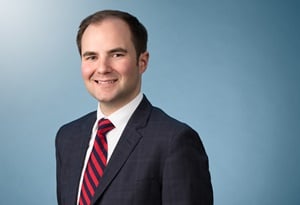Landmark Ruling: Franchisor Not Liable Absent Employment Related Control
On August 28, 2014, the California Supreme Court issued a landmark ruling in favor of Domino's Pizza and all business format franchisors that do business in California. In Patterson v. Domino's Pizza, LLC, ---P.3d---, 2014 WL 4236175 (Cal. Aug. 28, 2014), the court held that Domino's Pizza was not vicariously liable for wrongdoing by a franchisee's employee because Domino's did not retain or assume the general right of control over relevant day-to-day aspects of the employment and workplace behavior of the franchisee's employees. The court enunciated a clear rule: a franchisor "becomes potentially liable for actions of the franchisee's employees, only if it has retained or assumed a general right of control over factors such as hiring, direction, supervision, discipline, discharge, and relevant day-to-day aspects of the workplace behavior of the franchisee's employees." Patterson, at 30.
In a closely divided ruling (4-3), the majority held that, on the facts before it, Domino's was not vicariously liable for sexual harassment allegedly committed by a franchisee's employee. The court held that the franchise agreement did not give Domino's any right or duty to control employment matters for the franchisee. On a functional level, the franchisee exercised sole control over hiring, firing, supervising, managing, scheduling and paying its employees, among many other aspects. Moreover, the franchisee made the decision to discipline the employee who engaged in the alleged misconduct. The court thus concluded that Domino's did not retain or assume the right to control the franchisee's employees and, therefore, could not be held vicariously liable for their actions.
The California Supreme Court's decision is notable in that it affirms the value of franchising in the modern American economy and acknowledges that traditional legal analyses of agency and vicarious liability must evolve to "accommodate these contemporary realities." Patterson, at 2; see also Leach v. Kaykov, 2011 WL 1240022, at *15 (E.D.N.Y. Mar. 30, 2011) (traditional analyses of vicarious liability "do not fit squarely in the franchise context"); Kerl v. Rasmussen, Inc., 682 N.W.2d 328, 337 (Wis. 2004). The court expressly preserved a franchisors' ability to enforce uniform systemwide standards without risking vicarious liability for the misdeeds of franchisee employees. Patterson, at 29 (franchise operating system alone cannot constitute "control" necessary for vicarious liability); id. at 32 (franchise operating systems do not "necessarily" establish an employment relationship as this "would turn business format franchising ‘on its head.'").
Additionally, the court's decision to focus on a more narrow manner and means test which examines controls over the relevant day-to-day workplace, affirms the nationwide trend of applying some form of an "instrumentality" test of vicarious liability in the franchise context. Patterson, at 30-31; see, e.g., Papa John's Int'l, Inc. v. McCoy, 244 S.W.3d 44, 54 (Ky. 2008) ("emerging judicial consensus"); Depianti v. Jan-Pro Franchising Int'l, Inc., 990 N.E.2d 1054, 1063 (Mass. 2013); Ketterling v. Burger King Corp., 272 P.3d 527, 533 (Idaho 2012); Kerl, 682 N.W.2d at 341.
Finally, the Court's decision in Patterson is also noteworthy for what it does not address. Most notably, the Court expressly declines to comment on the issue of "ostensible" agency. Patterson, at 25. The Court also does not address how (or if) its opinion might apply to franchise or distribution models that do not fit within what it calls the "business format" model. See Patterson, at 18; Ruiz v. Affinity Logistics Corp., 754 F.3d 1093 (9th Cir. 2014). Additionally, it does not resolve the angst that franchisors face in light of the recent efforts by the National Labor Relations Board (NLRB) Office of General Counsel to hold franchisors responsible for allegedly unfair labor practices of its franchisees, as Faegre Baker Daniels reported in a July 30, 2014, update, "NLRB Office of General Counsel: Franchisors May Be Liable for Franchisees' Employment Practices." Thus, franchisors must remain vigilant in ensuring that their policies and procedures are tied to the protection of their brand and goodwill, and that they steer clear of getting involved in day-to-day control of the franchisee's workforce or employment matters.
The material contained in this communication is informational, general in nature and does not constitute legal advice. The material contained in this communication should not be relied upon or used without consulting a lawyer to consider your specific circumstances. This communication was published on the date specified and may not include any changes in the topics, laws, rules or regulations covered. Receipt of this communication does not establish an attorney-client relationship. In some jurisdictions, this communication may be considered attorney advertising.


